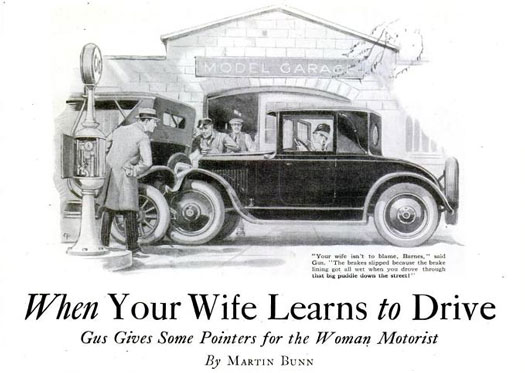

Over the years, Popular Science has strived to answer your questions about the world we live in. What’s on the moon? Why don’t we have flying cars? How do magnets work? As compelling and relevant as these questions are, though, none inspires as much fury as the age-old debate on whether men and women are equally capable.
For the most part, we answered no. Like it or not, our magazine has always been a product of its time, and for at least the first 70 years of our 138-year history, we held men in higher esteem because science and feminist literature had not yet given us reason to believe that women could accomplish much on a grand scale.
Click to launch the photo gallery.
While the battle of the sexes began thousands of years ago, we began paying extra attention to it in 1920, when women won the right to vote. Women began to matter, and as a male-dominated publication, we weren’t sure we approved. We balked women female athletes either broke, or came close to breaking records held by men. We scoffed at women who thought they could drive without getting into an accident. “Men, it seems, are able to beat women in sports just because they are men, endowed by nature with superior qualities of speed, strength, and stamina!” we wrote after arguing why women’s sports were a farce.
Still, we couldn’t deny the psychology reports demonstrating that male and female students scored equally on intelligence tests. We couldn’t deny that the male and female brains donated to science bore the same weight and measurements. A few of our writers conceded, saying that men and women were separate but equal. Their intelligence and temperaments complemented each other.
But this is the pre-Betty Friedan era we’re talking about. Calling women equals in the mid-1920s might have been a step forward, but later that decade, we took two steps back after publishing Dr. Prescott Lecky’s article on why women can never achieve greatness.
“Women do not count large among the geniuses because they do not want to be geniuses,” he wrote. “They want to be women.”
Offended? Amused? Or (lord help you) inspired? Click through our gallery to read more about the early 20th century’s attitude toward female intelligence, athletic ability and driving skills.










